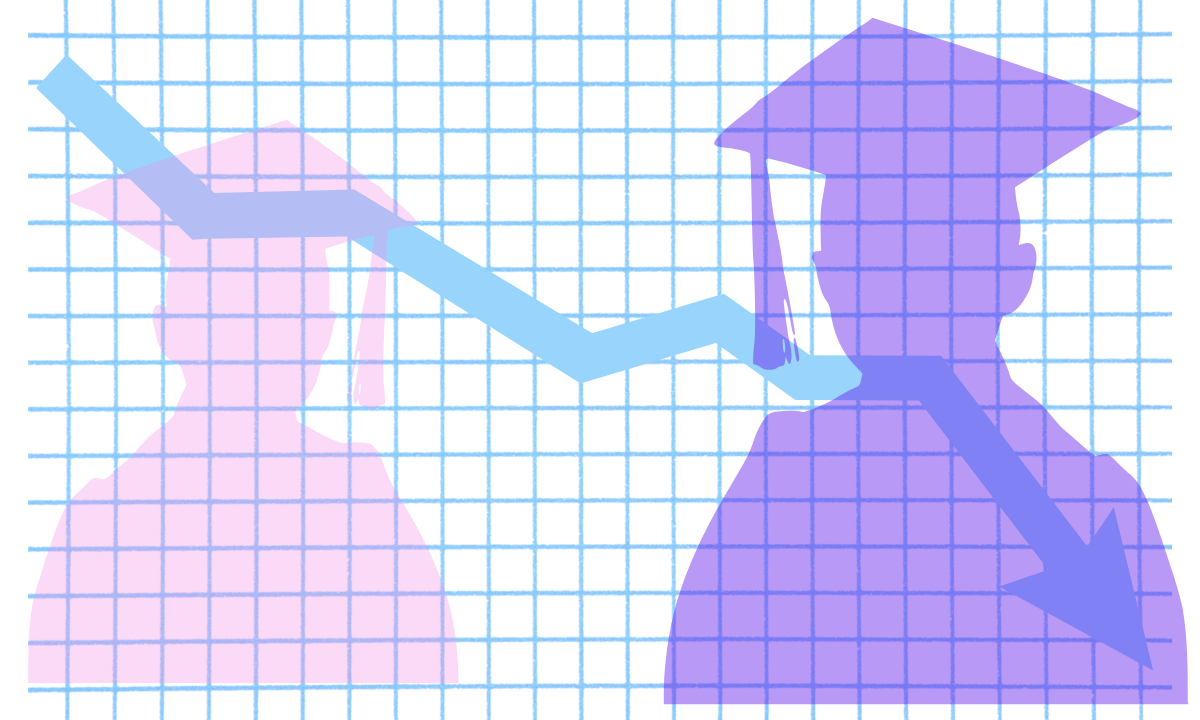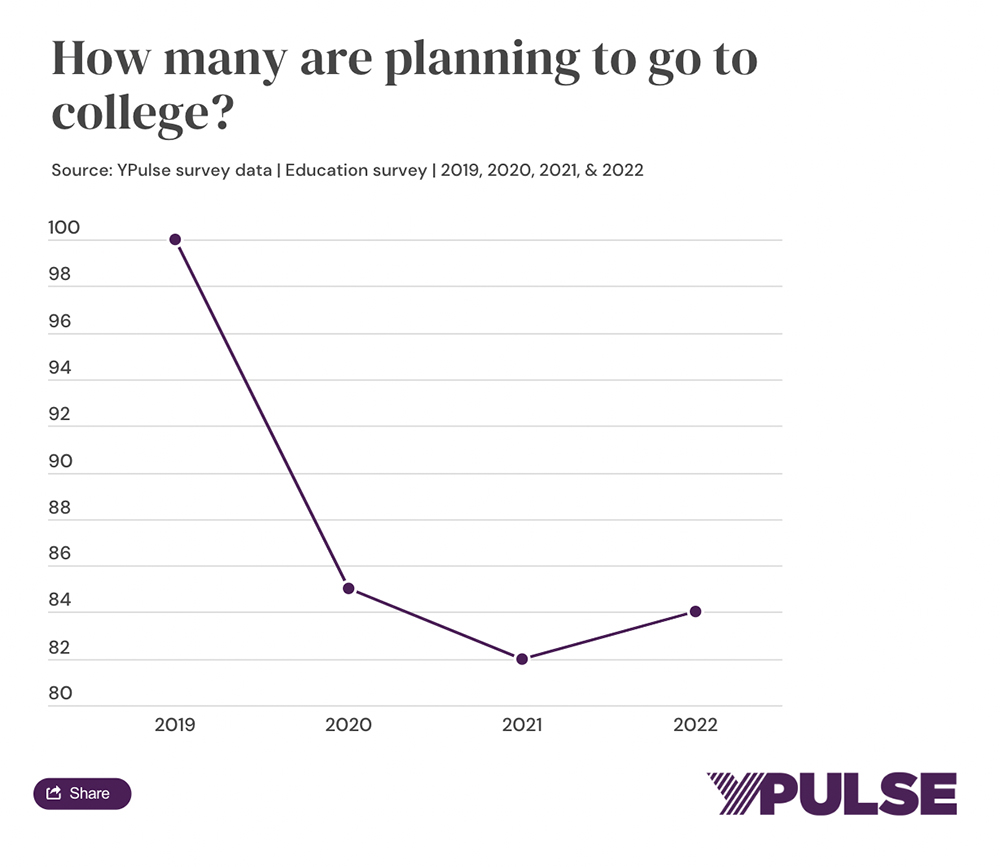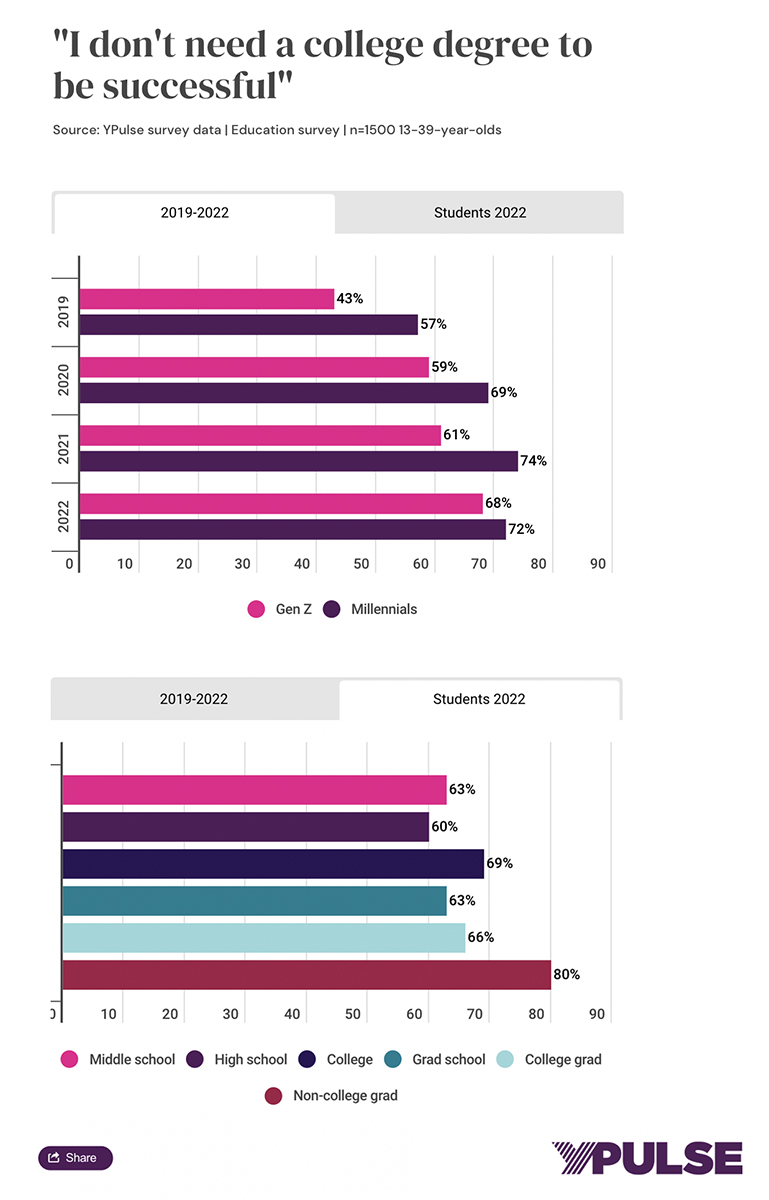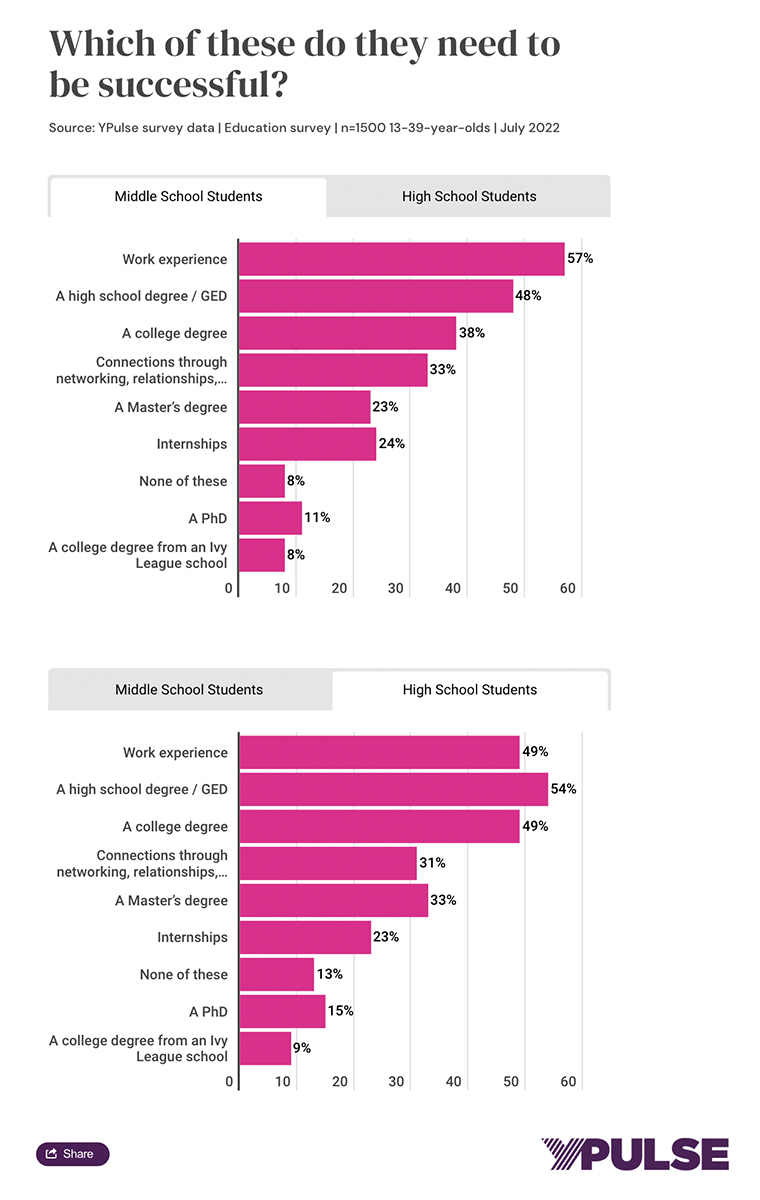Gen Z’s Declining College Interest Persists — Even Among Middle Schoolers
Three Gen Z advocates on how the pandemic-era trend continues to grow, pointing to the need for colleges to rethink their outreach strategies.

Get stories like this delivered straight to your inbox. Sign up for The 74 Newsletter
Consumed with pandemic-era grief, Gen Z’s apathy towards attending college has grown — even influencing students as young as middle schoolers.
A new YPulse report found two in five Gen Z students agreed with the statement: “The pandemic has made me less interested in pursuing higher education.”
Middle school students, generally 11 to 13 years old, not only contribute to the trend but also lead the view that work experience is more valuable.
That attitude has translated into an 8% decline in college enrollment from 2019 to 2022, showing how attending college is no longer a given for Gen Z.
“Seeing the way many Millennials are saddled with insurmountable debt from the higher ed system, and knowing from their online lives that other paths are possible, these high school and even middle school students are reconsidering if they even need college to be successful,” YPulse wrote in the report.
Gen Z advocates Brian Femminella, co-founder and chief executive officer of SoundMind, Bella Santos, community leadership board president of The Conversationalist, and Ian Gates, policy and program quality fellow of The Opportunity Project Tulsa talked about key takeaways from the report:

1. The vast majority of Gen Z middle school students say they don’t see a future pursuing college.
YPulse found 80% of Gen Z middle school students and 85% of high school students plan to go to college compared to 100% pre-pandemic.

Gates, 22, said pandemic-era online learning showed younger Gen Z students how monotonous taking classes can be — whether they’re in middle school, high school, community college or a four-year institution.
“[Gen Z] is thinking about different options now,” Gates told The 74. “A lot of us are thinking about non-college careers…like being a Youtuber, influencer and other alternate paths like that.”
Femminella, 23, said his own college education didn’t necessarily help him start his mental health company.
“When I see how a lot of younger kids would rather do something else, I applaud that,” Femminella told The 74. “We need more folks that want to do different things and shouldn’t fall into the stigma of college being a must.”
2. Gen Z students are more likely to find Google and YouTube more helpful than a teacher.
YPulse found Gen Z students were more likely to choose Google and YouTube over a teacher when asked: “If you wanted to learn something new, what resources would you use?”
Santos, 20, wasn’t shocked.
“There is often not a ton of oversight when it comes to how choosy schools are with who gets to teach — especially in public schools,” Santos told The 74. “Teachers and the system in which they teach aren’t always suited for success to begin with.”
Gates said disparaging parent attitudes towards teachers and school curriculum also had an effect on how Gen Z grows up to question the value of a college education.
“With the parental rights movement, certainly when you’re telling your kid ‘hey your teachers are trying to indoctrinate you and make you communist and make you gay’ it obviously gets to them,” Gates said.
Gates added how states such as Florida, which have banned AP Psychology and AP African American Studies, contribute to Gen Z’s disinterest in pursuing higher education by not exposing them to diverse courses.
3. Gen Z college students struggle to stay interested in their classes and believe they don’t teach practical skills.
YPulse found 55% of current Gen Z undergraduate students and 38% of Gen Z graduate students found their classes not relevant to their lives — in part because college doesn’t teach practical skills such as mental health skills, cooking and personal finance.
“Learning should be an enriching experience no matter what your interests are,” Santos said. “Yet school systems are often set up to just drill information into people’s brains.”
Femminella said mental health concerns should be the foundation on which professors shape their curriculum.
“There are some moments when students in college need to have a mental health day because they’re overworked,” Femminella said. “There’s not a lot of outlets and resources until it’s too late…and you’re really in the midst of a mental health crisis when there’s ways to avoid that.”
Femminella also said colleges should require personal finance and cooking courses.
“A lot of colleges forget that when Gen Z students close their computer, they’re a human and have to go do other human things like pay bills, cook and clean,” Femminella said. “I think it’s something that should just be incorporated into the entire university structure.”
4. Gen Z students wish they learned about alternative career paths growing up.
YPulse found that 74% of Gen Z students wish they learned more about alternative career paths compared to a traditional college education.

Santos said the social stigma of not attending college is declining among Gen Z students.
“I don’t think it’s for everyone, I don’t think it’s necessary, so it makes sense that other people in my generation see that,” Santos said.
Gates added how this is especially true for students who come from immigrant families and used to feel “the pressure that college is just what’s next.”
“Gen Z knows people are graduating college with all these loans,” Gates said. “They’re taking that into account, especially those from lower income families, and asking themselves if college is really worth it.”
5. Gen Z students believe work experience is more important than a college education.
YPulse found that 57% of Gen Z middle school students and 49% of Gen Z high school students believe work experience is more important than a college education.

Femminella said work experience has been the most helpful tool to his success.
“When you’re in your field and you get to practice, you also get to fail,” Femminella said. “And by failing you learn the most, and that’s been invaluable to starting my company.”
Get stories like these delivered straight to your inbox. Sign up for The 74 Newsletter

;)
